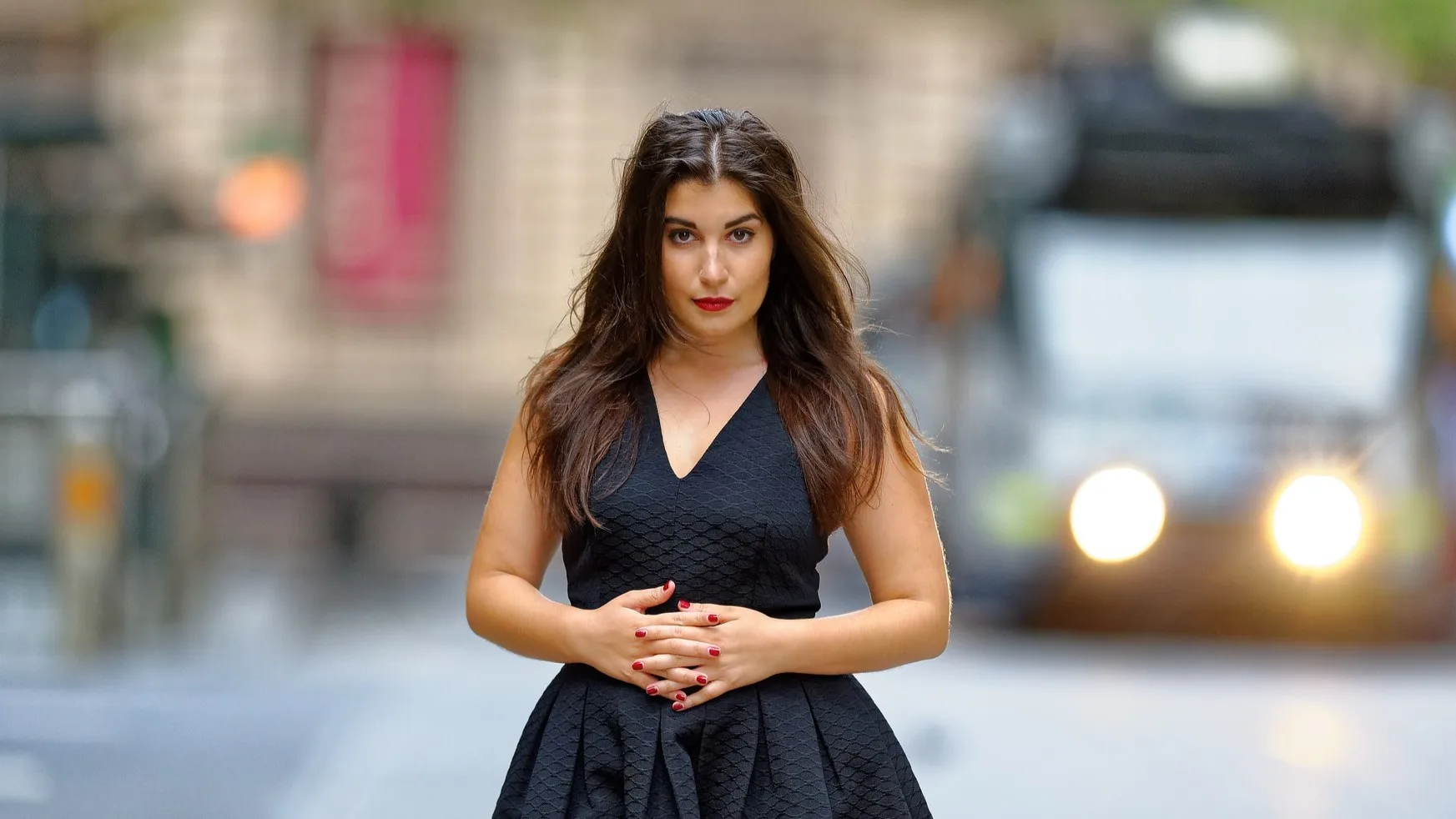While in Athens, Greece I met up with Christiana Aloneftis – vibrant and radiating good spirits – over a coffee. A Greek-Cypriot Australian, born and bred in Melbourne’s Manningham municipality, Christiana is in the early stage of her international artistic career.
“I commenced and am continuing my artistic trajectory as an opera singer as I build, alongside it, my career in film,” she tells me.
Having recently made her big acting break in the motion picture ‘Maria’ about Maria Callas’ life, coming to our screens shortly and also starring Angelina Jolie, Christiana says: “I grew up with posters of her [Callas] and articles on my mirror – some are still there! The images inspire my practice.”
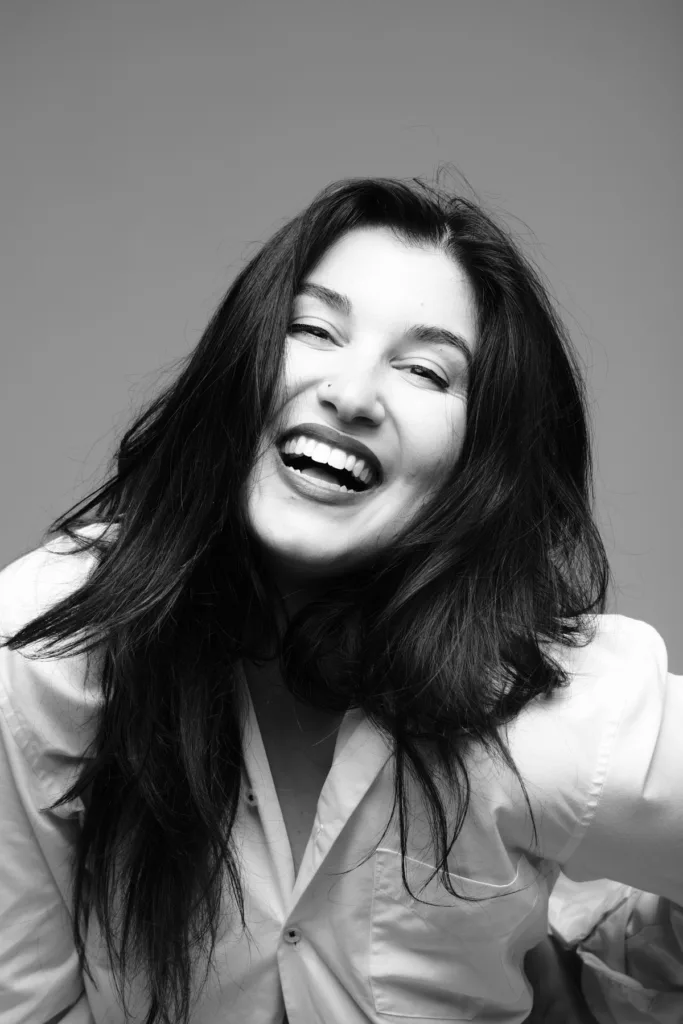
Christiana alludes to Callas as her professional role model. Talk about life imitating art! Both Christiana and Callas are children of the diaspora with Hellenic roots.
“Maria Callas was an extraordinary woman. I feel her guiding me – as a light. She is, undoubtedly, one of the biggest names in 20th century opera and, even though I have just one or two scenes in the film, it’s such an honour to play the young Maria at her debut in 1947,” Christiana says.
A Greek actress, Aggelina Papadopoulou, plays the younger Maria, while Jolie plays the diva in her final week of life.
According to the popular film website IMDB, “Maria is a 2024 biographical psychological drama about opera singer Maria Callas… the third and final film in [director] Pablo Larraín’s trilogy of ‘iconic’ women, succeeding Jackie (2016) and Spencer (2021). The film “follows the life story of the world’s greatest opera singer, Maria Callas, during her final days in 1970s Paris.”
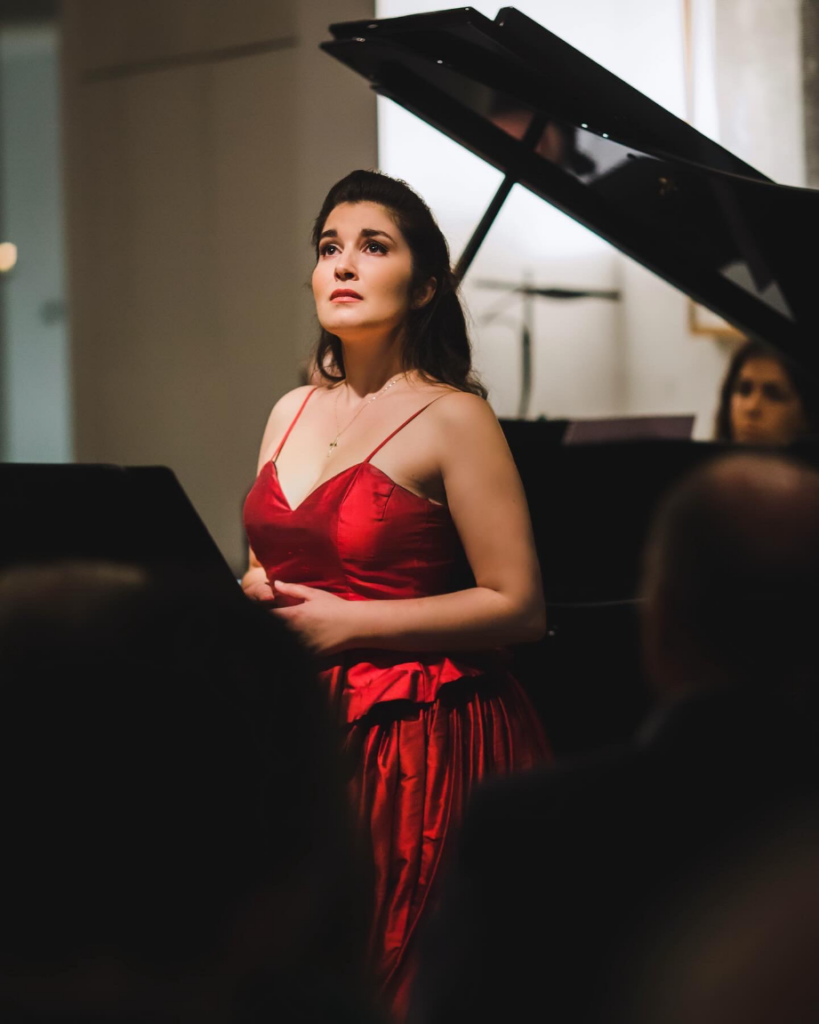
Christiana’s own brilliant operatic voice first resonated, so to speak, when she joined the local Greek community’s choir.
“The Greek school I went to had extra-curricular activities like dancing, theatre and singing with a new initiative being a Greek choir of young voices. The chorusmaster Peter Mousaferiadis made it so enjoyable, telling us stories of the origins of songs, etc. so, aged seven I was in a choir. I loved singing in Greek. I remember my favourite song being ‘The Paper Moon’ by Hatzidakis,” she says.
“I was also exposed to other languages at an early age. My Australian-born Cypriot mother spoke Italian and worked as an editor of Italian language educational books. She always underlined the importance of a solid, well-rounded education that went beyond the confines of the classroom.
“Foreign languages opened up possibilities and connections and I remember my mother fostering my interest in other cultures from a young age; also, through my social contacts and friendships. I learnt Italian alongside Greek and even pursued postgraduate studies and training as an interpreter with the aspiration to join the EU Commission. Had I not become a performing artist, I would have pursued a career in international diplomacy.”
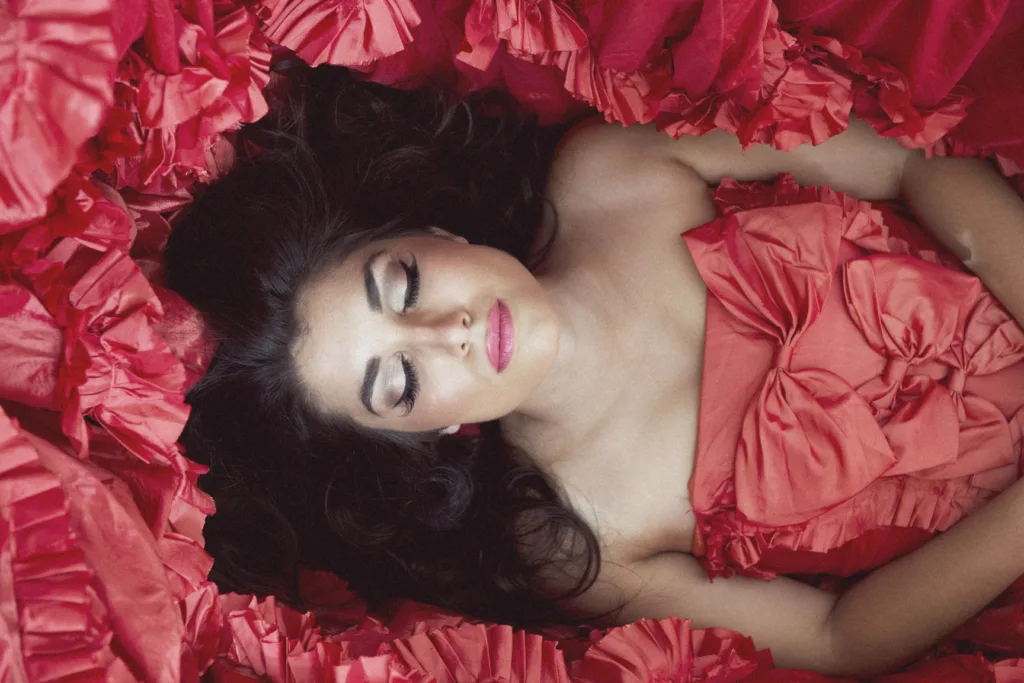
The pursuit of Christiana’s dream to become an opera singer were established through private training and postgraduate studies in linguistics and music. She holds four tertiary qualifications. During her tertiary studies, she participated in three cultural exchange programmes and has won multiple awards and scholarships to continue her development.
“Many people don’t know this but an operatic career requires continual study and professional development and artistic sponsorship is crucial in the flourishing of an international career,” she says.
Christiana’s global experiences broadened her horizons and forecast a future beyond Australian borders.
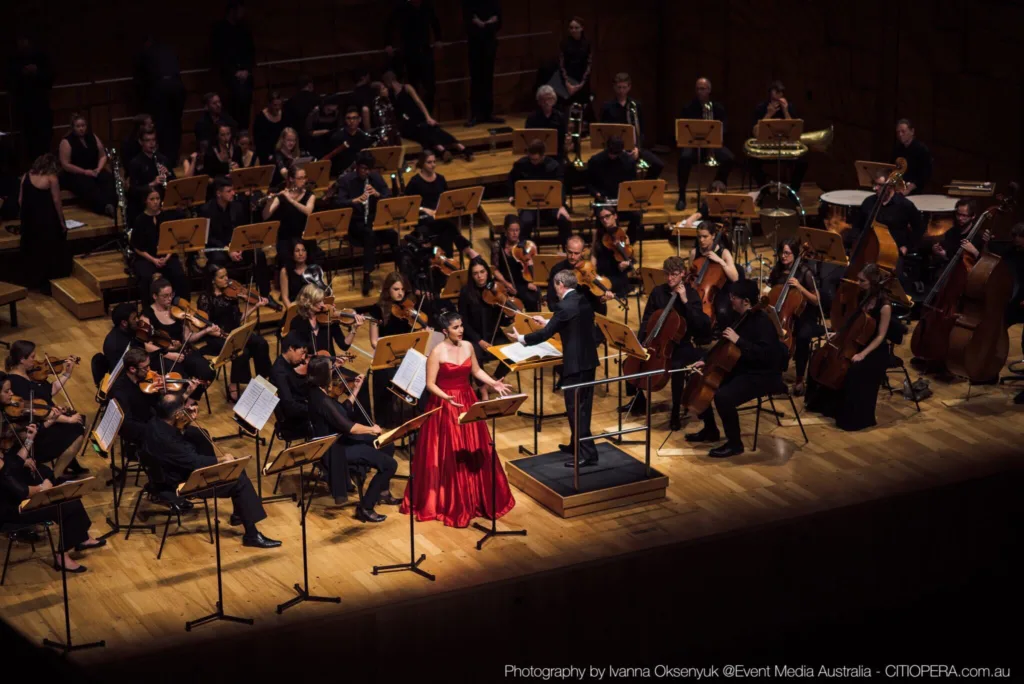
“These opportunities watered the seed for me to move abroad long-term. I left Australia permanently 10 years ago. I had always been curious about different cultures, of how people live, of how societies function. Unfortunately, Australia is very limited in terms of its artistic landscape and career development opportunities for opera and film-aspiring artists,” she says.
“Every year the arts budget continues to be slashed. Though this year, I was fortunate to win the 2024 Brian Boak Outstanding Performer Bursary, administered by the Empire Theatre. It is an important Australian career award, given to an emerging artistic talent of great promise.
“I believe, however, that it is 90% work and 10% talent. Talent must be paired with diligence. Being an opera singer also takes perseverance and discipline, including even watching what I eat so as not to get reflux for example, and keeping healthy through restricting alcohol, and through exercising. Opera singers are vocal athletes.”
Believing in the importance of cross-disciplinary mastery, Christiana is also the founder of two entrepreneurial initiatives. She is the founder of The Vocal Element – Elevating human connection which has a corporate consulting and coaching focus, and she is an Industry Coach and Mentor for Creatives, after having completed internships at Opera Australia and the Bavarian State Opera (Bayerische Staatsoper) in Munich.
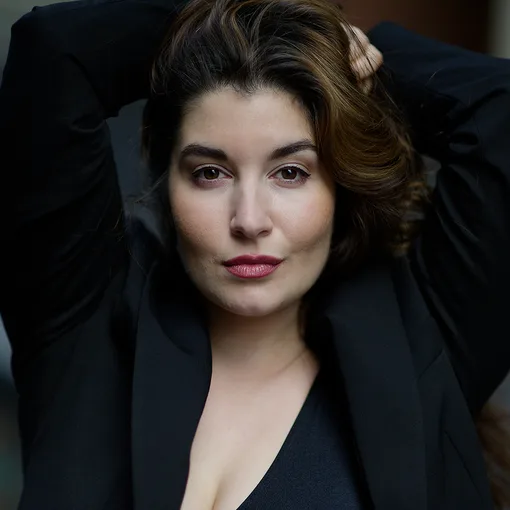
Aspiring talent and established professionals, from anywhere in the world, can be coached in a range of disciplines ranging from artistic identity branding, trauma-informed vocal and somatic fundamentals or lyric diction and declamatory techniques across the major operatic languages, to name a few.
“I even have a few hobby artists who find this sort of training very enriching,” she adds.
“The common denominator in all that I do is powerful communication and authentic expression through mastery of one’s greatest assets, the human voice and mind.”
Her wisdom beyond her years, of which I am in awe, may have something to do with her life philosophies which she says help to keep her focused.
Christiana says she tries “to abide by the principles of stoicism, to be humble,” while also attempting to adhere to the Aristotelian view of “techne” (art of craft), which she describes as “a deliberate, rational process of craftsmanship aimed at achieving excellence… balancing aesthetic form with a deeper meaning or purpose and involves ethical and intellectual dimensions.”
Hmm, I think, this girl knows her stuff! And it’s not all talk, pardon the pun, as Christiana is fluent in five languages.
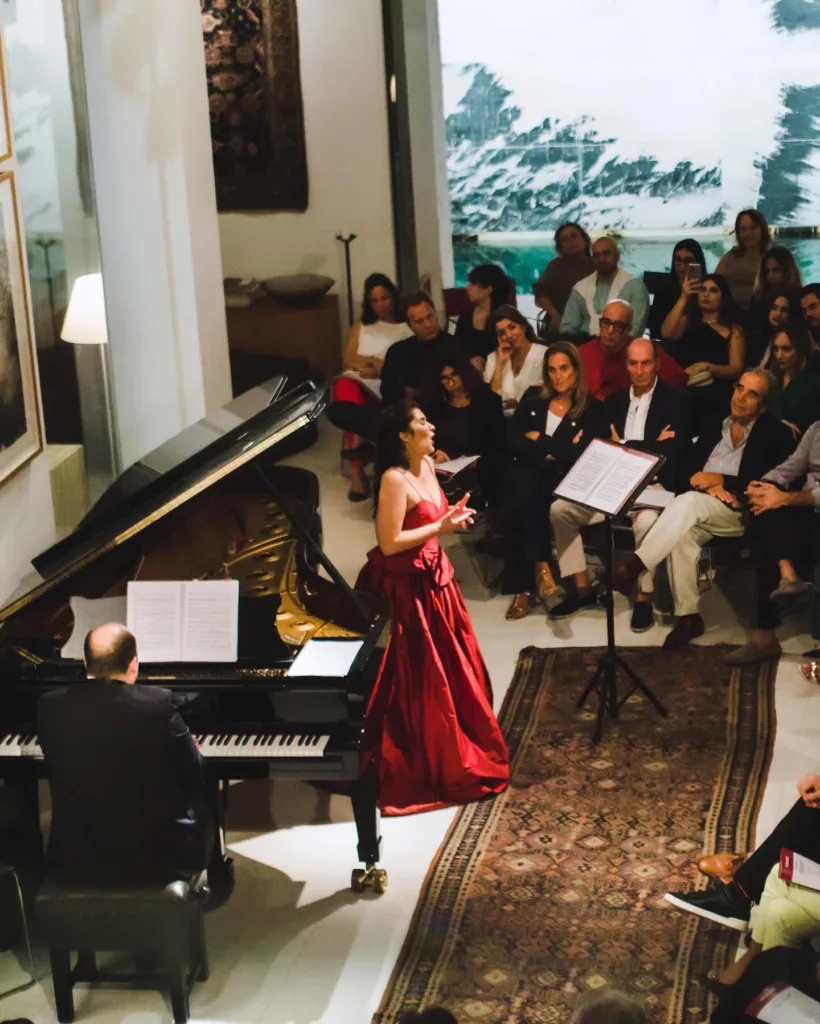
And speaking wisdom, I ask Christiana to offer some encouraging pointers based on her multi-disciplinary career and life experience.
Very generously and keenly she says: “Make the most of opportunities afforded to you – your education, your training. Everyone you come across in your life can teach you something. Go out there and get that training from someone with experience. Mentorship and guidance are of paramount importance, as are networking and connecting – never underestimate it. And don’t limit skill acquisition and learning to traditional institutions of schooling. They’re certainly avenues, but not the only ones. Pavarotti didn’t go to university! And learn languages – they open up a myriad of worlds.”
She continues, “success lies in cross-disciplinary mastery. Have other jobs and other interests. I think it is important to have a varied life experience.”
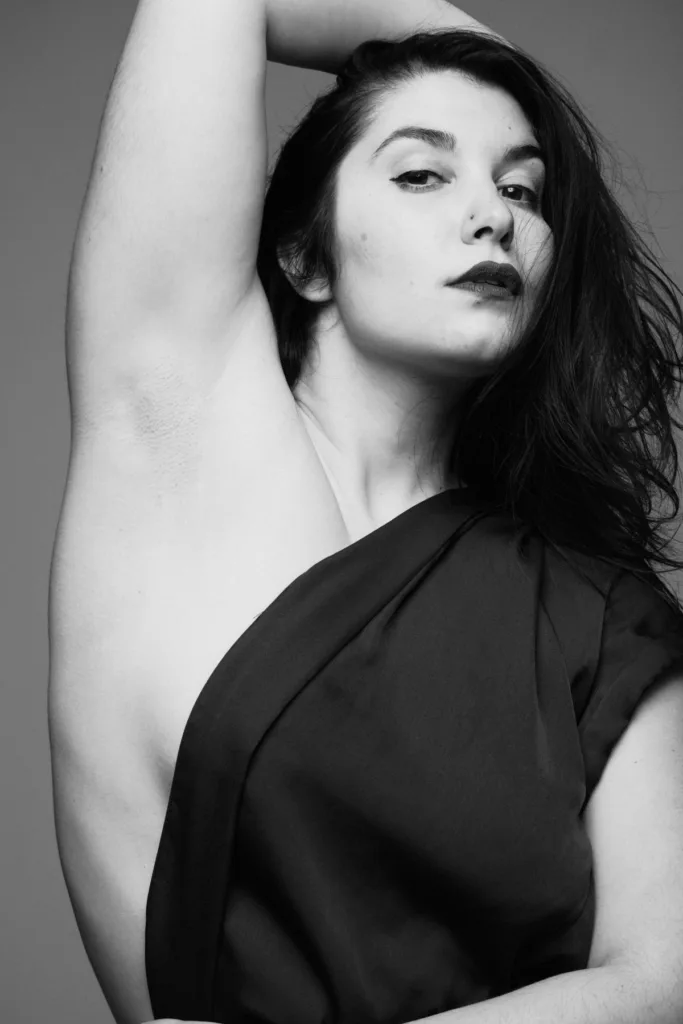
“There will come a time when a strong artistic focus is necessary. Many artists, especially in Australia, the US and the UK have day jobs too! This is also due to a bigger issue which is the general systematic lack of funding and employment structure these states have in place in relation to the arts and culture sector, but that’s a conversation for another time,” she adds.
“For example, in Germany you can work as a full-time soloist in a theatre and receive your normal monthly wage! I remember working, casually, at the age of 15 in a cafe at my local swimming pool to save money to put towards my cultural exchange programme.
“Don’t be afraid. Do things differently, don’t limit your path by the judgments or criticisms of others. People will only ever advise you through the paradigms of their own experience. Go to those who have made their dreams happen and emulate their behaviour. Embrace the process.”
Last but not least, this wise and amazing woman asserts: “Give others grace.”
I ask her to clarify and she answers, “give people a chance. Give yourself a chance. Keep going, make failure your friend. And… be open and respectful. Always respect the other,” before emphatically reminding us that “Opera is for everyone. It’s about human visceral emotion.”
Thank you, Christiana!
